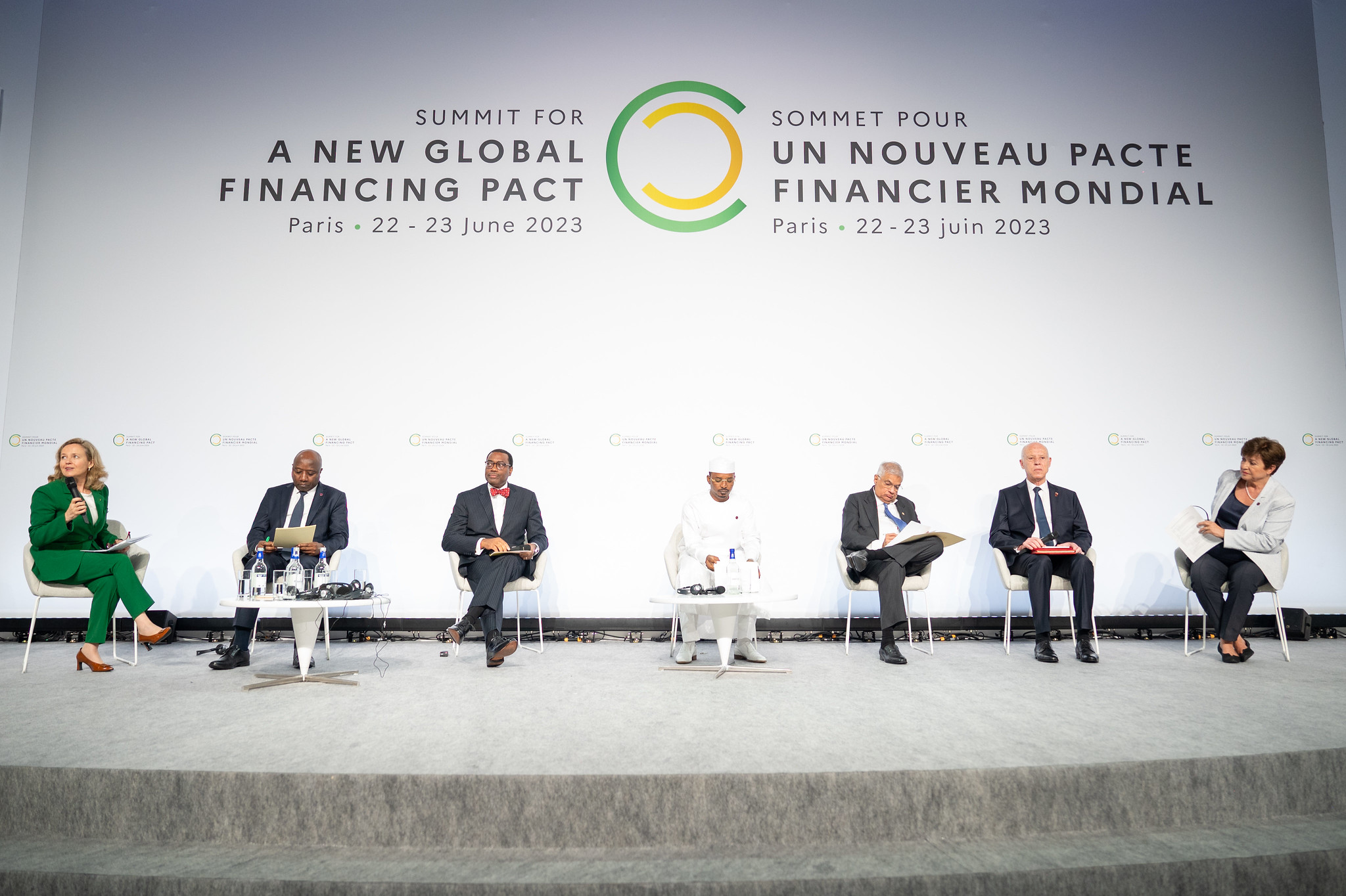
Zambian debt at Paris summit, a new global financial pact
Risk of over-indebtedness and default in Zambia
The Covid-19 crisis revealed once again the fragility of public finances in emerging and developing countries, triggering an explosion of public debt. Rising public debt has led to an increased risk of over-indebtedness and, in the long run, default, as in the case of Zambia.
This was already predicted by the United Nations in its review of the Economic Commission for Africa. External debt restructuring could significantly reduce the indebtedness of most heavily indebted African countries, as it tends to constitute a large percentage of sovereign debt (IMF, 2021a; World Bank, 2021).
The Covid-19 pandemic, the war in Ukraine and their negative consequences have reduced the fiscal and budgetary space of many countries. This has affected their ability to finance people’s access to basic social services.
Paris summit proposes solutions
At the G20 summit and at the end of a COP27 with mixed results, this summit, announced by President Macron, is in line with the Bridgetown initiative. It aims to propose solutions to financial issues that go beyond the climate issue, including access to healthcare and the fight against poverty.
The summit had four main objectives, including:
- restoring fiscal space for countries facing short-term difficulties, particularly the most indebted ones;
- promote private sector development in low-income countries;
- encouraging investment in ‘green’ infrastructure for the ecological transition of countries;
- mobilise innovative financing for countries vulnerable to climate change.
The agreement, which should serve as a model for other African countries, comes at the end of negotiations between the West and China, Zambia’s main creditor.
An agreement on restructuring Zambia’s debt was presented in Paris on Thursday 22 June
Receiving heads of state over dinner at the Elysée Palace, French President Emmanuel Macron announced that a compromise had been reached following negotiations under the supervision of the Paris Club, an informal group of public creditors.
In 2020, Zambia became the first country on the African continent since the beginning of the Covid-19 pandemic to default on its external debt. The country has sought help to restructure its debt through a G20 mechanism co-chaired by Paris and Beijing, but so far it has not produced convincing results.
Back in April, UN experts expressed concern about the delay in reaching an agreement on restructuring Zambia’s debt and the negative impact on the lives of the population. At the end of 2021, the southern African country’s external debt amounted to more than 17 billion, a third of which was owed to China. In August 2022, Zambia obtained an extended credit line of USD 1.3 billion for 38 months from the International Monetary Fund (IMF).
During a visit to Paris in May, the Zambian President had the opportunity to meet his French counterpart. A meeting devoted exclusively to economic issues in the run-up to the summit for a new financial pact. Paris pledged to complete the Zambian debt restructuring programme with a view to a new global financial pact. In Zambia, this statement was greeted with great relief, according to the Zambian Minister of External Affairs and International Cooperation, quoted by the Lusaka Times. Businessman Hakainde Hichilema, who came to power in August 2021, had promised economic recovery, the elimination of corruption and the return of investors.
With a population of almost 20 million, Zambia is the world’s second largest producer of copper and defaulted on its debt after the pandemic outbreak. On Thursday 22 June, China, considered the largest creditor of this southern African country, agreed to restructure USD 6.3 billion of Zambian debt.
![a new global financing pact (1)]() But what is debt restructuring and how does it work?
But what is debt restructuring and how does it work?
Debt restructuring generally takes three forms, whether it involves extending maturities, reducing interest charges or partially cancelling an amount of debt; the different options can be considered simultaneously or separately, and can take place before or after a default. However, restructuring is most effective when implemented before default.
The first option would be to facilitate restructuring through collective action clauses, where the diversity of creditors and the high level of opacity surrounding the actual level of indebtedness of some countries and their commitments to creditors are major obstacles to the implementation of restructuring processes.
The second option would be to implement initiatives, such as those recently undertaken by the G20 and the IMF, to improve the multilateral framework for restructuring in order to ensure greater transparency.
The third option is to encourage countries to demonstrate greater transparency, so that they can benefit from early relief and other forms of aid.
The role of the international financial institutions should therefore be to accompany the restructuring of external debt, ensuring diligence and coordination, to provide adequate technical assistance, and to facilitate the participation of private sector creditors through the timely exchange of information on the ability of countries to repay their debt according to the proposed restructuring agreements.
Restructuring is not a long-term solution to the external debt problem
African countries increasingly face a ‘political-economic imbalance’. This imbalance is generally caused by the desire to promote democracy, which encourages those in power to spend too much and tax too little. This imbalance always leads to chronic over-indebtedness. Until this imbalance is adequately and effectively addressed, debt restructuring is likely to remain a long-term feature of the development process in African countries. Countries must therefore better control the sources of their vulnerability.
Read Also
COP27, African bishops call for climate reparations for vulnerable communities
COP27, religious leaders highlight correlation between climate change and humanitarian crises
Senegal: towards ecological mobility in the capital Dakar
Nigeria Leads The Way With Electric Cars
A beautiful country where people survive



 But what is debt restructuring and how does it work?
But what is debt restructuring and how does it work?